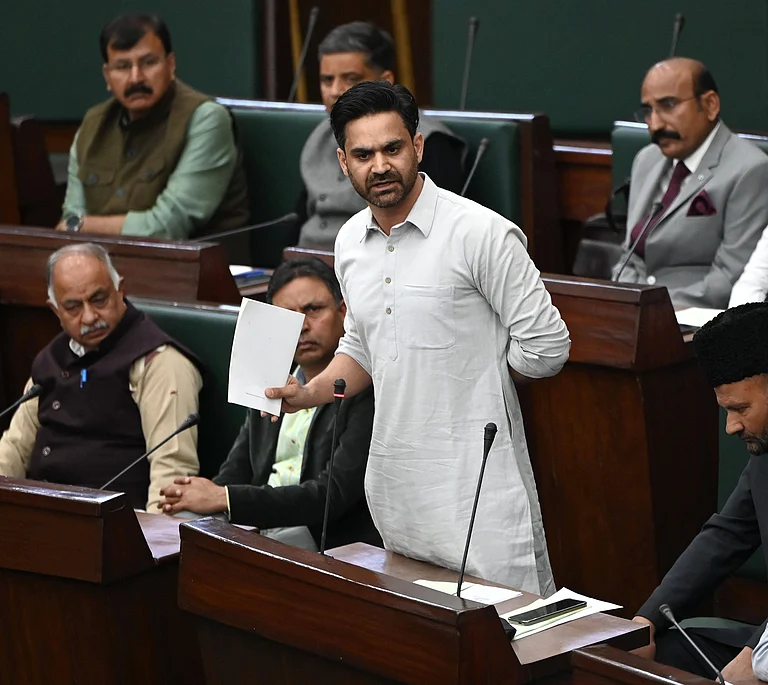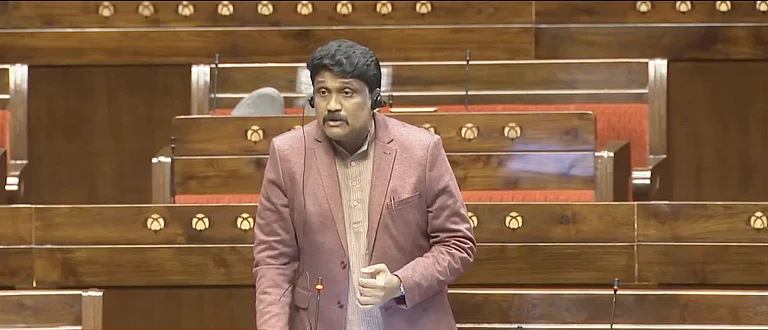IT was a sort of Tiananmen Square of the publishing world that Rupert Murdoch found himself caught in recently in London. Certain newspapers—ones Murdoch still doesn't own—rallied around Chris Pat-ten, the last governor of Hong Kong, after HarperCollins—the publishing house Murdoch owns—refused to publish his memoirs because he was critical of the "inscrutable and interchangeable" Chinese leaders, a critique in which Murdoch saw "negative aspects" for his business interests in China.
So while this Goliath of the media world backed the greater Goliaths of Beijing, Stuart Profitt, a senior editor at HarperCollins who was handling Patten's book, east and west, quit his job because he refused to rubbish Patten's book. Patten simply took the book to Macmillan, for a similar advance of £125,000 and proceeded to sue HarperCollins for breach of contract. To recover his loss, Profitt too is suing HarperCollins for constructive dismissal.
Joining Patten in the fight for editorial freedom is a group of writers who might collectively ostracise HarperCollins. Among them is Simon Heffer, authorised biographer of Enoch Powell, the right-wing British leader who died recently. Jonathan Power announced he'd remove his new history of Amnesty International from HarperCollins unless Murdoch did "something extraordinary" like apologising and publishing Patten's book. Timothy Garton Ash, a specialist on eastern Europe, cancelled the publication of his two books later this year by HarperCollins. Peter Hennessey, writing an account of 11 prime ministers from Clement Atlee to Tony Blair, said no author in his right mind would now go to HarperCollins. Booker Prize winner Arundhati Roy, whose immensely successful God of Small Things was also handled by Profitt, is also rumoured to be pulling out.
Writers alone aren't abandoning Harper-Collins. Patten's literary agent Michael Sissons, who also represents such political writers as Alan Clark, Michael Heseltine, Lord Lawson, Lord Healy, A.S. Byatt, John Mortimer and handles the literary estates of Evelyn Waugh, Rebecca West and J.B. Priestly, said he'd ask prominent writers he represents to drop HarperCollins unless it apologises. He was quoted as saying that Murdoch has "commercially interfered" in the contract since he admitted it was at his instance that it was cancelled. He is probably suing Murdoch directly.
Other writers, however, are staying on. Among them is John Major, believed to have been paid half-a-million pounds for publication of his memoirs, and Jeffrey Archer, writer and formerly Tory minister. Frank Delaney, author of A Stranger in their Midst even said, "all proprietors intervene". Michael Dobbs, whose book The Buddha of Brewer Street is critical of Chinese occupation in Tibet, said "not a single bit of concern or pressure was brought on me" over the publication of his book.
In an interview to The Times—a newspaper he owns—Murdoch defended himself saying he was right in not wanting to publish the book; his managers were wrong in the way they did what he wanted. "I did not tell people to try to censor the book or invent excuses not to do it... I said 'Why don't you go and say we would rather have someone else publish this and if there is any chance of losing money we will make it good?' They chickened out and got themselves into the position where they were inventing reasons in the middle of January why they didn't want to publish it which were nonsense, leaving me in a completely inexcusable position."
Even so, Murdoch stuck to his contempt for Patten. "I think he made a bit of a fool of himself out there after suddenly discovering democracy at the end of a 100-year-rule." A statement from Murdoch's News Corporation in New York made it clear that "he expressed dissatisfaction about the decision to publish it" from the start. But he decided to cancel its publication only after the first draft was submitted in January. Clearly, he was told what Patten had to say.
Managers at HarperCollins blundered tactically when they asked Profitt to run down the book as an excuse for abandoning it. "The stance I was being required to support was implausible and incredible," Profitt said. Patten was told he was free to exercise his freedom of expression elsewhere. Patten told the Daily Telegraph: "I don't see how you can be in favour of free speech in one part of the world and less keen on it in another." He said he had not believed Murdoch's business interests in China would become a factor. "If I had I'd never have signed," he said.
Meanwhile, HarperCollins chairman in Britain Eddie Bell is considering resigning. He's also "talking to lawyers" for legal action he might require. Freedom of expression, HarperCollins might well discover, is not to be interfered with.


























